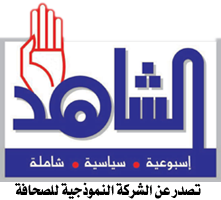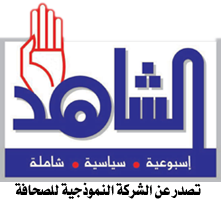الشاهد - بقلم : م. فلاح طبيشات
في تقرير استقصائي غامض صادر عن مركز الدراسات الاستراتيجي الدولي (CSIS) للكاتب والمحلل ' ويل تودمان' Will Todman والمعنون تحت عبارة ( انهيار شبكة الامان الاجتماعي في الأردن ؟) اجريت فيه مقابلات لعشرات المواطنين في الأردن.
حيث انطوى التقرير الجريء على وصف للحالة الاجتماعية الأردنية الراهنة مع تركيز على ما يعتبره الكاتب مؤشرات على امكانية تدهور وربما انهيار الشبكة التقليدية للحماية الاجتماعية وذلك بتأثير غير مباشر للأوضاع الاقتصادية المعقدة التي تعيشها البلاد في إشارة لإمكانية حدوث حركة احتجاج شعبية في أي لحظة !
استهل الكاتب مقالته بأن الأردنيين مترددين في الخروج للشارع خشية المواجهة، كما يشير التقرير الى أن شكل العلاقات والروابط الاجتماعية بدأت بالضعف ! وأن مطالب الولاء والإنتماء للوطن لم تعد مبررة! ويذهب الكاتب في توقعه أنه لم يتبقى سوى شرارة صغيرة لتأجيج غضب الشارع وبدء الاحتجاجات الشعبية وكما حصل في كل من لبنان والعراق الخريف الماضي !
يتحدث التقرير عن ماهية شكل العلاقات الاجتماعية مستقبلاً وتعقيداتها وما مصيرها؟ حيث تشكل الضائقة المالية والاوضاع الاقتصادية الخانقة عامل ضغط على الروابط الأسرية وأن التغير الحاصل لدور المرأة في المجتمع احد أسباب تلك التعقيدات !
حيث ذُكر بأن نسب البطالة وصلت ل 39 % في حين ان الارقام الرسمية الصادرة عن الحكومة تقترب من 19% وهنا يكمن التساؤل عن صحة تلك النسب ؟
تضمن التقرير اقتباسات من مقابلات مع مواطنين يتحدثون عن انهيار منظومة العلاقات بين افراد المجتمع ،حيث الروابط الأسرية والتواصل المجتمعي في أضعف حالاته هذه الفترة بالذات ! وكما يشير الكاتب الى ان دور القبائل حاليا لم يعد يبرز في دعم المنظومة المجتمعية كما في السابق وعلل انخفاض المساعدات الخليجية بسبب تراجع نفوذ العشائر !
كما يتحدث ايضاً عن سعي الدولة الاردنية للمحافظة على النظام القبلي والعشائري كوسيلة للسيطرة على البلاد من خلال تجنيد ابناءهم في القطاع العام واهمه الجيش ولكن مع تدهور الوضع الاقتصادي ستضطر الدولة لتدابير تقشفية مما قوّض دورها تجاه العشائر .
أقرّ التقرير الى وجود مخاوف من تعميق الراديكالية والتطرف لدى الشباب بعد تخلي الدولة عن دعم المجتمعات والشباب مما يعرضهم الى الاستغلال من قبل جهات عدائية للدولة الاردنية !
وهنا تكمن التساؤلات للحكومة عن ماهية دورها الحقيقي في المحافظة على منظومة مجتمعية راسخة وداعمة لمقومات النهوض بالوطن وتكوين جبهة داخلية متينة لمساندة السلطة في ظل تطورات متسارعة تتشابك وأولويات ومصالح الوطن العليا والتي تهددها ظروف الصراع الاقليمي المجاور وقرارات الكيان المحتل المرتبطة بما يسمى ب ' صفقة القرن' المدعومة من واشنطن !
لا يمكن المررو بهذا التقرير دون الإلتفات الى محتواه الخطير وخصوصاً أنه ناتج عن مشاهدات ومقابلات عيانية وليست تحليلية، وصادر عن مؤسسة محترفة ولها سمعتها الدولية وتعتمد في تحليلاتها ونشراتها على وقائع ونتائج ملموسة ، وبالتالي فإن المخاوف التي ابداها التقرير مبررة! ولذا فإن الدولة الاردنية معنية في دراسة هذا التقرير او على الأقل الرد عليه موضوعياً .
الحديث هنا يتمثل وفي زوبعة الضغوطات التي يواجها الأردن في بلورة منظومة سياسية اقتصادية اجتماعية متكاملة تنعكس في نتائجها وأهدافها على تغيير النهج القائم في الإدارة العليا للحكومة وهذا ما توصل اليه تقرير المجلس الاقتصادي الأخير، وتعزيز الثقة والمصداقية بين الحكومة والشعب، اضافة لاتخاذ مجموعة قرارات شجاعة تتمثل في قضايا تتعلق بإصلاحات سياسية واقتصادية شاملة والبحث عن حلول عميقة وملموسة تنعكس ايجاباً على مكونات المجتمع ككل.
لقراءة التقرير من الموقع اضغط على الرابط أدناه ://
https://www.csis.org/analysis/collapse-jordans-social-safety-net?fbclid=IwAR2az86uErhVtSZzlXJwC1QfxMSApAHA61FZrtwqclDwZmR_AI_wX7NxjKY
نص التقرير ://
The Collapse of Jordan’s Social Safety Net
This commentary is based on research conducted for the report, Ties that Bind: Family, Tribe, Nation, and the Rise of Arab Individualism.
Will Todman is an associate fellow in the Middle East Program at the Center for Strategic and International Studies in Washington, D.C.
“People are hesitant to go out now,” the director of a Jordanian community center in Karak said. Karak castle was the site of an attack by gunmen in late 2016 that left 19 people dead. But the fear she described was not that of being caught up with violent extremists. Instead, she was referring to a fear of bumping into friends or relatives. “If you bump into someone you know, you’d feel obliged to invite them for a coffee or a meal,” she joked. “We can no longer afford such luxuries.”
Her dark humor mirrored a common theme that emerged from interviews with 40 Jordanians conducted for a recent CSIS report, Ties that Bind. Jordan’s deteriorating economic situation is straining traditional support networks and reshaping Jordanians’ ties with their relatives, friends, and local communities in the process. And these shifts are beginning to take on a political dimension, provoking broader questions about the foundations of the Jordanian state’s demands of loyalty from its citizens. Although Jordan has avoided the kind of protests that toppled leaders in Iraq and Lebanon this fall, the kindling exists, and all it may take is a spark.
Jordanians’ economic woes are altering their understanding of what they can expect from others and the obligations they feel to them. Interviewees reported that because traditional social support networks in Jordan now have fewer resources, they are less able to provide for their members. Jordanians described financial troubles as the primary cause of strained family relationships, weakened community ties, and a stifled social life. Increasing mobility, technology, and the changing role of women as economic actors are also compounding these trends.
A farmer in northern Jordan described feeling forced to sell his land to be able to send his daughter to university in Amman. “She refused to return to the village to visit us,” he sighed. “She said it was too expensive, the road was dangerous, and she didn’t have time because of work.” After she graduated, she struggled to find a job, and he had no way to keep supporting her. That woman’s difficulties are no outlier: Jordan’s youth unemployment rate reached 39 percent in the fall of 2019.
Several interlocutors noted that women are increasingly expected to contribute financially to their families as a result of the economic situation. “Men want working brides now,” one woman said. However, women argued that it is especially hard for them to find work because employers fear they will go on maternity leave. Although they are expected to become breadwinners for their families, women’s obligations at home remain largely unchanged. By and large, women continue to be held responsible for maintaining social networks despite having less time and fewer resources to do so.
Other traditional social support nets are also crumbling. Older Jordanians spoke nostalgically of the strong local communities of their youths and argued that rapid urbanization, the worsening economic situation, and the influx of refugees have undermined those relationships. “Now, I only realize a neighbor is getting married when I hear the honks of the marriage procession,” one Jordanian man remarked. Others admitted that they don’t even know the names of neighbors in their apartment buildings, and so they feel unable to turn to them for even basic requests. “There are no neighbors now,” one Jordanian woman stated plainly.
Tribes traditionally acted as a more formal source of social support when their members faced financial troubles. But tribes play a less pronounced role in daily life, even in southern Jordan, where tribal identities remain more salient. Interviewees linked a decrease of revenues from Gulf Arab states to a decline in tribes’ influence. They said most tribes will only help their members in extreme cases of legal or physical insecurity. A frustrated young man in northern Jordanian described tribes as “fake” because they continue to expect a lot from their members but provide “nothing in return.” A tribesman from Ma`an recalled that, even as his tribe’s youngest member, he had been expected to contribute over $400 when his “cousin” was involved in a murder. Several interviewees agreed that tribes’ only real benefit is the protection they provide.
The relationship between tribes and the state is currently in flux. After its creation, the Jordanian state sought to maintain the tribal order as a means of exerting its control over the country. The recruitment of tribesmen to the public sector, and particularly to the army, was a key pillar of that relationship. But as the economic situation has worsened, the government has been forced to cut public spending and adopt austerity measures in order to access a $723 million bailout from the International Monetary Fund. It cannot bolster tribal networks today as it has before.
As tribes’ ability to help their members has declined, some Jordanians began to expect more from the government, and they reassessed their relationship with the state. Jordanians described having an increasingly transactional relationship with the state as its historical method of obtaining their loyalty has been undermined. “The shift to privatization means the government can’t buy loyalties by distributing jobs anymore,” a young leftist activist argued. As well as failing to provide jobs, Jordanians reported a decline in the quality of services the state provides. General awareness of corruption has also “skyrocketed,” which has fueled discontent. Jordanians said that expressing frustration with the state has become a topic of more open discussion in recent years, although criticism of the king remains taboo.
Older interviewees cited their fears for the young generation and hinted that the disintegration of social structures could drive instability in Jordan. A local NGO director warned that as young people feel their support networks of family, friends, tribe, or state are failing them, they become increasingly vulnerable to exploitation. Although few interviewees expressed concerns about radicalization as a result of the collapse of social safety nets, their fear about the consequences of the building economic crisis was palpable. December 17, 2019
 الحوراني يقود عمان الأهلية للصدارة
الحوراني يقود عمان الأهلية للصدارة
 طالب الدراسات العليا في عمان الأهلية أبو السعود يتأهل للألعاب الأولمبية في باريس
طالب الدراسات العليا في عمان الأهلية أبو السعود يتأهل للألعاب الأولمبية في باريس
 المجموعة العربية في الأمم المتحدة تطالب بقبول فلسطين دولة كاملة العضوية
المجموعة العربية في الأمم المتحدة تطالب بقبول فلسطين دولة كاملة العضوية
 7200 جريح إسرائيلي احتاجوا للتأهيل منذ بداية الحرب
7200 جريح إسرائيلي احتاجوا للتأهيل منذ بداية الحرب
 تركيا تتهم نتنياهو بـ"دفع المنطقة إلى الحرب للبقاء في السلطة"
تركيا تتهم نتنياهو بـ"دفع المنطقة إلى الحرب للبقاء في السلطة"
 الاسواق الحرة الأردنية تحتفل بيوم العلم في بوليفارد العبدلي
الاسواق الحرة الأردنية تحتفل بيوم العلم في بوليفارد العبدلي
 أورنج الأردن تطلق برنامجاً تدريبياً حول دور التقنيات الحديثة في الزراعة المستدامة ومكافحة غزو الجراد الصحراوي
أورنج الأردن تطلق برنامجاً تدريبياً حول دور التقنيات الحديثة في الزراعة المستدامة ومكافحة غزو الجراد الصحراوي
 العين الدكتور يعقوب ناصر الدين يرعى اليوم الطبيّ المجانيّ في "الشرق الأوسط"
العين الدكتور يعقوب ناصر الدين يرعى اليوم الطبيّ المجانيّ في "الشرق الأوسط"
 اتفاقية تعاون بين "الشرق الأوسط" و"التوثيق الملكيّ" لتعزيز النشاطات الثقافية والتدريبية
اتفاقية تعاون بين "الشرق الأوسط" و"التوثيق الملكيّ" لتعزيز النشاطات الثقافية والتدريبية

 الحوراني يقود عمان الأهلية للصدارة
الحوراني يقود عمان الأهلية للصدارة
 طالب الدراسات العليا في عمان الأهلية أبو السعود يتأهل للألعاب الأولمبية في باريس
طالب الدراسات العليا في عمان الأهلية أبو السعود يتأهل للألعاب الأولمبية في باريس
 المجموعة العربية في الأمم المتحدة تطالب بقبول فلسطين دولة كاملة العضوية
المجموعة العربية في الأمم المتحدة تطالب بقبول فلسطين دولة كاملة العضوية
 7200 جريح إسرائيلي احتاجوا للتأهيل منذ بداية الحرب
7200 جريح إسرائيلي احتاجوا للتأهيل منذ بداية الحرب
 تركيا تتهم نتنياهو بـ"دفع المنطقة إلى الحرب للبقاء في السلطة"
تركيا تتهم نتنياهو بـ"دفع المنطقة إلى الحرب للبقاء في السلطة"
 الاسواق الحرة الأردنية تحتفل بيوم العلم في بوليفارد العبدلي
الاسواق الحرة الأردنية تحتفل بيوم العلم في بوليفارد العبدلي
 أورنج الأردن تطلق برنامجاً تدريبياً حول دور التقنيات الحديثة في الزراعة المستدامة ومكافحة غزو الجراد الصحراوي
أورنج الأردن تطلق برنامجاً تدريبياً حول دور التقنيات الحديثة في الزراعة المستدامة ومكافحة غزو الجراد الصحراوي
 العين الدكتور يعقوب ناصر الدين يرعى اليوم الطبيّ المجانيّ في "الشرق الأوسط"
العين الدكتور يعقوب ناصر الدين يرعى اليوم الطبيّ المجانيّ في "الشرق الأوسط"
 اتفاقية تعاون بين "الشرق الأوسط" و"التوثيق الملكيّ" لتعزيز النشاطات الثقافية والتدريبية
اتفاقية تعاون بين "الشرق الأوسط" و"التوثيق الملكيّ" لتعزيز النشاطات الثقافية والتدريبية






 الرد على تعليق
الرد على تعليق 